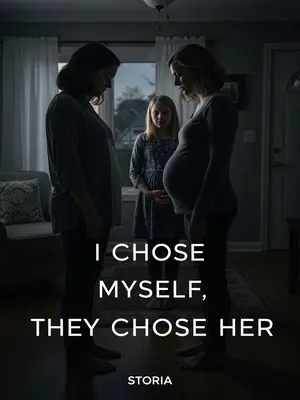Chapter 5: Leaving the House That Wasn’t Home
My father chimed in: “Savannah, don’t overthink it. In this family, no one’s taking anyone’s place.”
His voice was gentle, patient.
I wondered if he even realized I was listening.
Actually, there is.
I pressed my palm to the cool wall, the truth settling in my bones.
There was always someone on the outside, looking in.
It’s me.
I closed my eyes, letting the silence swallow me whole.
I took a nap, and the house was already quiet.
The stillness was thick, broken only by the distant hum of the air conditioner.
The housekeeper said Miss Savannah was in a bad mood, so my parents took her shopping.
I pictured them in some upscale boutique, bags swinging from their arms, Savannah in the center of it all.
I just said, “Oh, that’s fine.”
My voice was flat, empty.
I didn’t care anymore.
I started sorting out the birthday cards—these were given by my parents and relatives when they picked me up.
Adding up to more than fifteen thousand dollars.
The cards were stacked neatly, crisp bills tucked inside.
I ran my fingers over them, feeling the weight of possibility.
I wanted to save it.
I counted every dollar, careful and precise.
This was my safety net, my ticket out.
Because my future wouldn’t be easy, this money was my best shot.
I knew better than to trust promises.
Cash was safer than love.
The old neighbor helped me get a bank account, so I walked to a nearby branch.
I tucked the money into my backpack, double-checked the zipper, and set off down the sidewalk.
The city felt less intimidating this time around.
After three years of misery in my last life, I already knew the area well, so I wouldn’t get lost anymore.
I kept my head down, moving with purpose.
I didn’t want to draw attention.
At the bank, a sharp-looking man in a tailored suit came toward me, the branch manager beside him, fawning over him as he left.
The man’s shoes were polished to a mirror shine, his tie perfectly knotted.
He looked like he belonged on a magazine cover.
I stopped.
My heart skipped a beat.
I recognized him instantly.
The man in the suit was my brother, Carter.
He hadn’t changed at all—still imposing, still distant.
This time, it was our first meeting.
I watched him approach, my nerves buzzing.
I braced myself for disappointment.
But he recognized me—after all, he’d seen my photos and videos.
His gaze was sharp, assessing.
He looked right through me, like I was just another problem to solve.
He saw me too, looked me up and down, and spoke coldly: “Ellie Brooks?”
His voice was clipped, businesslike.
No warmth, no welcome.
I just nodded.
I kept my eyes on the floor, refusing to flinch.
The bank manager’s eyes lit up, and he asked brightly: “Miss, what’s your relationship to Mr. Brooks?”
He leaned in, eager to make a good impression.
I felt like I was on display.
Carter frowned, annoyed. “You don’t need to know. Go do your job.”
He waved the manager away, his tone sharp enough to leave a mark.
The manager left with an awkward laugh.
He shuffled off, muttering apologies.
I almost felt sorry for him.
Carter looked at me again. “You just got home, what are you doing here?”
His eyes narrowed, suspicion clear in every line of his face.
“Making a deposit.”
I answered honestly and went to get a ticket.
I didn’t owe him an explanation.













